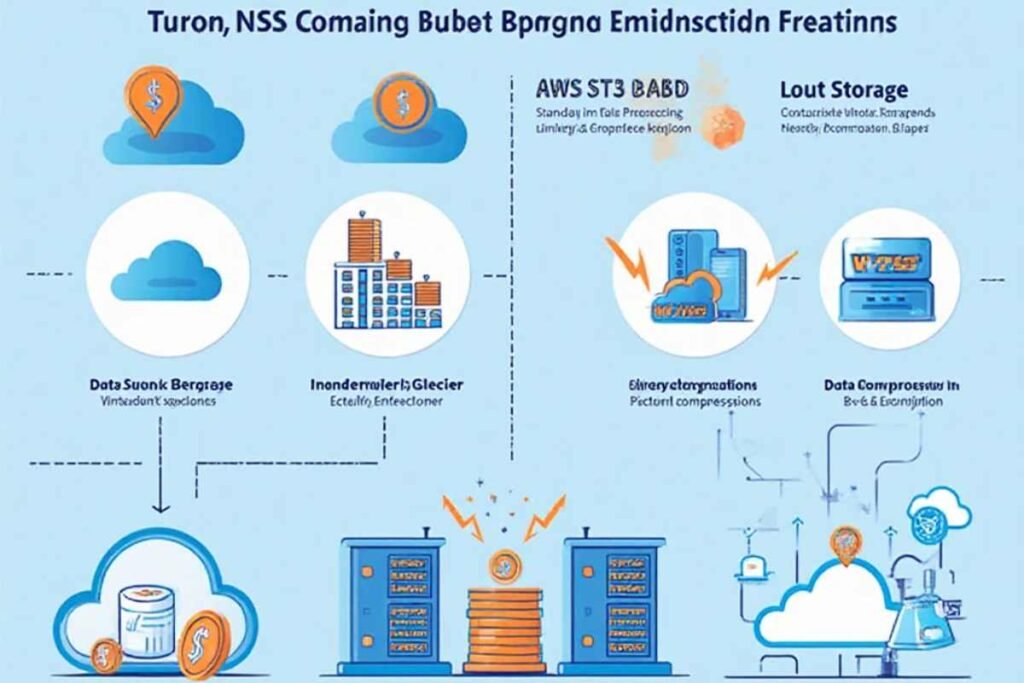In the world of cloud computing, AWS S3 Interview Questions are among the most frequently asked topics for aspiring cloud engineers DevOps professionals and data architects. Amazon Simple Storage Service S3 is one of the core services of Amazon Web Services AWS that provides scalable object storage for data backup archiving analytics and application hosting.
Whether you’re preparing for a job at Amazon a cloud consulting company or a large enterprise using AWS understanding AWS S3 interview questions is essential. This article covers everything from fundamentals and benefits to advanced technical and scenario based questions.
What is AWS S3?

AWS S3 short for Amazon Simple Storage Service is an object based storage solution that allows users to store and retrieve any amount of data at any time from anywhere on the web. Unlike traditional file storage S3 organizes data as objects within buckets.
Each object consists of data metadata and a unique identifier. S3 provides 99.999999999% 11 nines of durability ensuring that your data is safe even in extreme failure conditions. It is designed for scalability and is used by businesses ranging from startups to Fortune 500 companies.
Benefits and Importance of AWS S3
AWS S3 has transformed how companies store manage and secure data. Some of the most important benefits include:
- Scalability: S3 automatically scales storage capacity as data grows without manual intervention.
- Durability: With 11 nines of durability, data loss is nearly impossible.
- Security: AWS S3 integrates with IAM encryption and access control lists ACLs to protect data.
- Cost-Effectiveness: Pay only for what you use making it ideal for startups and large enterprises alike.
- Integration: Works seamlessly with AWS services like Lambda EC2 Cloud Front and Athena.
Interviewers often want to know how these benefits translate into practical business advantages. You might be asked to explain how S3 contributes to cloud architecture efficiency, disaster recovery, or cost optimization strategies.
How to aws s3 interview questions?
To answer AWS S3 interview questions confidently, it’s important to understand its internal architecture. AWS S3 stores data as objects in buckets. A bucket acts like a container where data objects are stored. Each object contains three key elements:
- Key (name of the object)
- Value (the actual data)
- Metadata (data about the data)
Data uploaded to S3 can be accessed via a unique URL or programmatically using AWS SDKs or APIs. S3 supports versioning lifecycle policies and replication making it a robust and flexible system for all types of data workloads.
Common AWS S3 Interview Questions and Answers
What are S3 storage classes?
AWS S3 offers multiple storage classes to help manage cost and performance:
- S3 Standard
- S3 Intelligent Tiering
- S3 Standard IA Infrequent Access
- S3 One Zone-IA
- S3 Glacier
- S3 Glacier Deep Archive
These classes allow users to choose the best balance between access frequency and storage cost. Interviewers may ask you to explain which class you would use for backup or long term archival.
What is Versioning in AWS S3?
Versioning keeps multiple copies of an object in the same bucket, preventing accidental data loss. When versioning is enabled every modification or deletion creates a new version of the object.
What is an S3 Bucket Policy?
A bucket policy is a resource-based policy that defines permissions for all objects within a bucket. It’s often written in JSON and is used to control access by specific users accounts or IP addresses.
What is S3 Lifecycle Management?
Lifecycle rules automate data movement between storage classes or deletion after a specific time. For example you can automatically move data from S3 Standard to Glacier after 30 days.
What is Cross Region Replication CRR?
CRR automatically replicates data from one S3 bucket to another in a different AWS region, improving redundancy and data availability.
Advanced AWS S3 Interview Questions?
How does S3 ensure data durability and availability?
S3 replicates data across multiple availability zones AZs. Even if one data center fails, your data remains safe and accessible.
Explain Event Notifications in S3.
Event notifications allow users to trigger workflows based on bucket events such as object uploads or deletions. It integrates with AWS Lambda, SNS, or SQS for automation.
What is Pre signed URL in S3?
A pre signed URL grants temporary access to private S3 objects without exposing AWS credentials. These are useful for securely sharing data.
How does S3 integrate with CloudFront?
Amazon CloudFront uses S3 as an origin for distributing content through a global CDN improving performance and reducing latency.
AWS S3 Security Features
Security is a key topic in AWS S3 interview questions. AWS provides several layers of security:
- Encryption: Data can be encrypted at rest SSE-S3 SSE-KM) or in transit SSL/TLS.
- Access Control: IAM policies ACLs and bucket policies manage permissions.
- Public Access Block: Prevents accidental public exposure of sensitive data.
- Logging and Monitoring: AWS CloudTrail and CloudWatch provide visibility into bucket activity.
In interviews, you might be asked how to secure sensitive data or prevent unauthorized access. Demonstrating knowledge of encryption types and IAM roles will impress interviewers.
AWS S3 Pricing and Cost Optimization

S3 pricing depends on several factors storage class, data volume, request type, and data transfer. Cost optimization strategies include:
- Using Intelligent Tiering for dynamic access patterns.
- Setting Lifecycle Rules to transition objects to cheaper classes.
- Compressing and encrypting data to reduce size and cost.
- Enabling Requester Pays for shared buckets.
Employers often assess your ability to manage cloud costs, making pricing-related AWS S3 interview questions a common topic.
Use Cases of AWS S3
AWS S3 supports a wide range of business applications:
- Backup and Restore: Secure, scalable backup storage for any system.
- Big Data Analytics: Works with Athena or EMR to analyze large datasets.
- Disaster Recovery: Acts as a reliable off site backup.
- Static Website Hosting: Host static web pages directly from S3 buckets.
During interviews, be prepared to discuss real-world use cases where S3 was applied effectively.
Step by Step Guide to Create and Manage S3 Buckets
To give actionable value here’s how to set up Tutorials and Guides and manage an S3 bucket:
- Login to AWS Management Console
- Navigate to S3 Service
- Click Create Bucket and assign a unique name
- Choose Region based on latency and compliance needs
- Set Permissions using IAM or ACLs
- Enable Versioning if required
- Upload Data or integrate through SDK/API
Understanding this process helps you confidently handle practical AWS S3 interview questions during live tests or scenario-based interviews.
Best Practices for Using AWS S3
To make the most of S3:
- Always enable versioning and encryption.
- Use lifecycle rules for cost efficiency.
- Restrict public access to prevent data leaks.
- Monitor access logs for unusual activity.
- Combine S3 with CloudFront for global delivery.
These best practices showcase your technical maturity during an interview.
AWS S3 Integration with Other AWS Services
S3 seamlessly integrates with multiple Development Practices AWS offerings:
- AWS Lambda: For serverless processing of S3 events.
- Amazon Athena: Query S3 data directly with SQL.
- AWS Glue: For ETL and data cataloging.
- Amazon Redshift Spectrum: Analyze large data directly from S3.
Integration-based AWS S3 interview questions test your understanding of AWS ecosystems and data pipelines.
Common Mistakes to Avoid with AWS S3
Interviewers may test your awareness of common pitfalls such as:
- Leaving buckets public unintentionally.
- Ignoring versioning and lifecycle rules.
- Mismanaging permissions with overly broad policies.
- Forgetting to use encryption for sensitive data.
Knowing these errors shows your readiness for real world environments.
Performance Optimization in AWS S3
AWS S3 can handle massive workloads efficiently if optimized:
- Use multipart uploads for large files.
- Leverage transfer acceleration for global uploads.
- Use parallelization for faster data processing.
- Monitor request rates and performance metrics through CloudWatch.
These points are often discussed in advanced-level AWS S3 interview questions for senior roles.
Latest AWS S3 Features in 2025
AWS continues to evolve S3 with new features such as:
- S3 Express One Zone for high-performance storage.
- Storage Lens for detailed analytics on storage usage.
- Improved Intelligent-Tiering for automated cost savings.
- Enhanced Replication metrics for better monitoring.
Staying updated with the latest features shows interviewers you’re passionate about continuous learning.
Troubleshooting Common S3 Issues

When things go wrong, these troubleshooting insights matter:
- Access Denied Errors: Check IAM roles, bucket policies, and ACLs.
- Slow Upload Speeds: Use S3 Transfer Acceleration or multi-part uploads.
- Missing Objects: Review versioning status or lifecycle deletions.
Troubleshooting-oriented AWS S3 interview questions demonstrate your problem-solving ability.
Conclusion
Mastering AWS S3 interview questions requires not just memorizing answers but understanding how the service fits into the cloud ecosystem. From storage classes and security to integration and cost optimization AWS S3 forms the backbone of modern cloud architectures.
By learning its features architecture and practical use cases you can confidently answer any S3 related question during interviews. Remember the key is to think like an AWS architect focus on scalability security and efficiency in your responses.
FAQs
What is the difference between S3 and EBS?
S3 is object storage for unstructured data while EBS is block storage for EC2 instances.
How do you secure data in AWS S3?
Use encryption SSE-S3 SSE-KMS IAM policies and disable public access.
Can you host a website using S3?
Yes AWS S3 supports static website hosting with custom domain integration.
How does S3 ensure data durability?
S3 replicates data across multiple Availability Zones for high durability.
What is the largest object you can store in S3?
The maximum size of a single S3 object is 5 TB.


